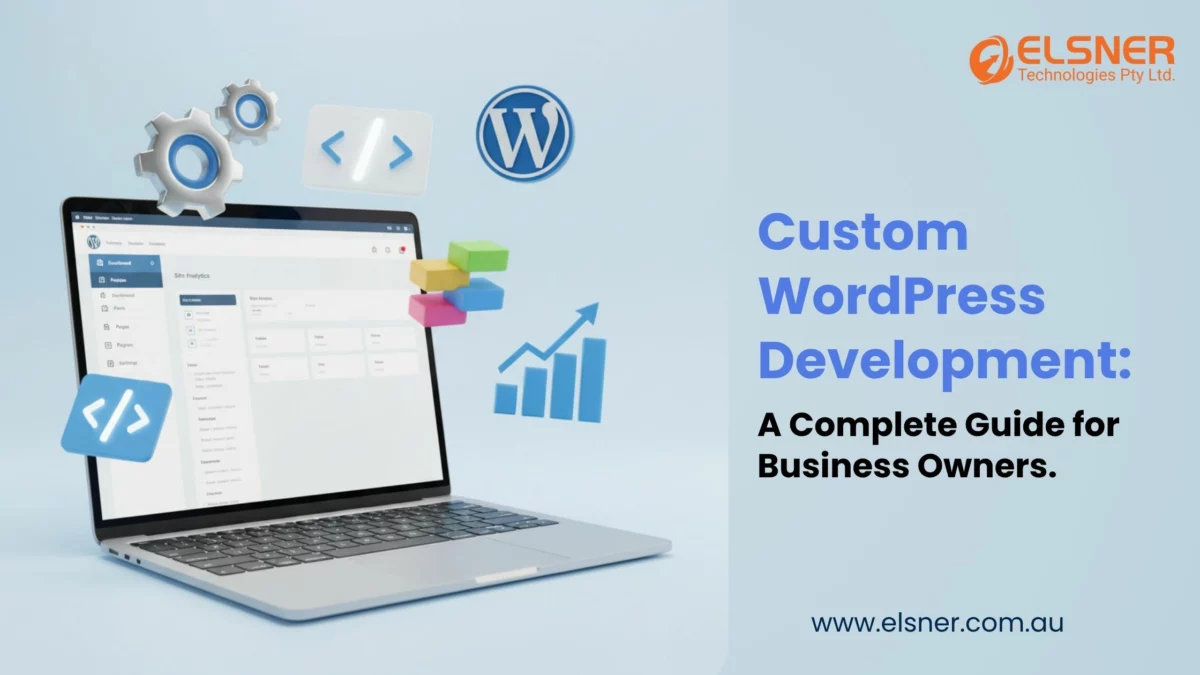Maximize Mobile App Performance: Essential Optimization Tips
MobileIn the present time, Mobile App have become an integral part of our day-to-day lives. With time, the usage of the apps continues to grow at a rapid pace. As there is a considerable rise in their usage, it is essential to focus on optimizing the app’s performance. This process typically involves boosting an app’s speed, responsiveness, and efficiency. Whenever a particular app is optimized correctly, it helps improve the user experience effectively. Not only that, but it contributes to the success of your business.
Are you looking forward to getting in touch with professional mobile app developers or hiring a dedicated Android app developer to maximize the performance of your apps? If yes, then let’s have a look at some of the best tips and best practices that help optimize mobile app performance:
Why is it important to focus on mobile app performance optimization?
Optimizing the performance of your mobile app is known to offer several benefits. Some of these include the following:
UX or User Experience
Mobile users always expect responsive and fast apps. Whenever you focus on the optimization of the mobile app, it generally results in swifter load times, smoother interactions, etc. Ultimately, it leads to overall better user satisfaction levels.
App Store Ratings
When deciding rankings, there are certain factors that the app store algorithms often take into consideration. It includes stability and app responsiveness. In this regard, it is essential to note that optimized apps are more likely to get higher ratings and much better visibility in app stores.
Retention and Engagement
Users are more likely to continue employing and engaging with an application that tends to perform well. Again, optimized performance can aid in retaining users and persuade them to spend more time within the app.
Reduced Churn
Poor performance, like frequent crashes or slow loading times, can drive users away from your app. So, it becomes crucial to focus on optimizing app performance, which is possible by reducing churn rates and retaining a more extensive user base.
Competitive Advantage
Performance is something that can act as a critical differentiator in a crowded app market. So, it is important to ensure that your app offers superior performance. This consideration will help your app stand out in a fiercely competitive space. Not only that, but this strategy also helps attract users to your app, which enables you to gain a competitive edge.
Cost Efficiency
Whenever the apps are optimized, they are more likely to consume fewer system resources. It includes battery, memory, and CPU. Thus, it leads to lower operating costs for users.
Also Read: https://poptopic.com.au/tech/beyond-tomorrow-navigating-the-ai-expedition-in-mobile-app-development/
What are the best practices to follow for optimizing the performance of mobile apps?
If you are looking forward to maximizing the performance of your mobile apps, then there are certain tips that you should strictly abide by. Here, we are going to discuss the best practices that you should follow in this aspect. So, let’s find out:
Conducting Performance Testing
Before launching your application, all you need to do is carry out comprehensive performance testing. This particular step helps in finding out potential bottlenecks and problems. With performance testing, you would be able to closely determine the memory usage, response time, and CPU utilization of your application. However, you should make sure to perform this testing at different stages of the mobile app development cycle. This way, you can promptly catch performance issues and fix them before the launch.
Reducing the Size of the Application
It is the size of the app that considerably impacts its performance. When the app sizes are large, it leads to an increase in the load time. It can result in user frustration and abandonment. There are some of the best ways in which you can reduce the app size. It includes compressing images, removing unused codes and resources, and optimizing audio and video files. The smaller the size of the app, the faster it will load.
Optimizing the Mobile App Code
Another mobile app performance optimization best practice that you should follow involves the optimization of app code. This particular step typically entails reducing the number of HTTP requests, caching frequently used data, and minimizing resource consumption. So, this optimization technique helps reduce load times effectively and contributes to improving the speed of the app. Not only that, but code optimization also works to enhance the performance of the device and reduce battery consumption. You can hire mobile app developers or hire iPhone app developers to receive any related aid.
Leveraging a CDN or Content Delivery Network
A CDN or Content Delivery Network, typically acts as a network of servers that facilitates distributing app content to users depending on their geographic location. Whenever you rely on a CDN, it helps reduce the app’s load time effectively, which again plays a key role in improving user experience. Also, by employing a CDN, you would be able to effectively reduce server load, which helps reduce downtime and improve server performance.
Minimizing Battery Drain for Mobile App
If you are looking forward to improving the app’s performance, then one of the major steps you should follow involves minimizing battery drain. Some of the best ways in which you can achieve this objective are by limiting background processes, employing efficient coding techniques, and reducing the usage of visual effects and animations. Thus, these strategies facilitate the effective reduction of consumption. Users are more likely to make use of an app that does not quickly drain their battery.
Implementing App Updates
Another best practice you should follow is updating your app regularly with bug fixes and performance enhancements. This particular approach works to improve the app’s performance. One of the important things to note in this aspect is users expect apps to be frequently updated. Also, these updates facilitate enhancing functionality, improving the user experience, and fixing any performance concerns.
Optimizing for Distinct Devices
You should make sure to optimize the app for different devices. This step helps in improving performance. Different devices tend to have different specifications, like screen size and memory. So, optimizing the app for these specifications is crucial if you want to boost the user experience. In this regard, you should ensure that the app is tested on different screen sizes and devices. It helps in detecting any performance concerns.
Maintaining a Clean Codebase
Having a clean codebase is more than aesthetics. It is something that tends to have a direct impact on app downloads, as it helps effectively minimize heavy activity initialization and content loading time. There are specific ways in which you can maintain cleanliness in your codebase. It includes regularly refactoring your code to eradicate obsolete or redundant sections.
Leveraging Design Patterns for Mobile App
It is possible to address some of the most common coding challenges through design patterns. They can considerably improve the efficiency of your app’s main thread. So, it ultimately leads to a boost in conversion rates on specific platforms, such as the Apple App Store.
Minimizing Heavy Activity Initialization
Whenever resource consumption is done excessively, it can considerably impact the performance of a mobile app. It applies especially to those operating on devices with low memory capacity. Mobile app developers or Android developers can deal with this particular concern by minimizing heavy activity initialization. It considerably affects the user experience during the app launch phase.
Reducing Data Amount Loading for Mobile App
There is the availability of multiple techniques that facilitate optimizing memory usage. It typically incorporates employing proper data structures and avoiding object creation in hot methods. Also, whenever developers choose to do frequent monitoring, it helps in detecting potential areas where there is a chance for further optimizations. These combined strategies are known for assisting in reducing load time and boosting the app’s performance. It again facilitates improving app content loading time and boosting overall efficiency.
Employing Caching Techniques for Mobile App
Caching techniques are proven to be vital tools that you should necessarily add to the mobile app performance optimization checklist. They involve storing data temporarily to improve user experience and reduce load time. To learn further, you can reach out to or hire Android developers.
In-Memory Caching for Mobile App
This particular technique involves storing data within a device’s RAM, which offers quick access whenever required. However, it necessitates meticulous management, as excessive usage can result in memory issues that considerably affect the user experience.
Disk Caching for Mobile App
Disk caching is another important strategy for enhancing content loading time. This technique involves saving information on a device’s physical storage. Although this technique is slower when compared to in-memory caching, it allows for app loads of extensive amounts of data without increasing load time. Another best part is that, in this case, the app’s main thread is not impacted.
Object Pooling for Mobile App
An object pooling method is an effective tool that reduces heavy activity initialization, especially during app launches. So, you should essentially consider this method when evaluating user behavior with your app. This specific strategy involves the reuse of pre-initialized objects instead of creating them from scratch every time they are needed. Thus, it helps in improving the overall mobile app performance.
Analyzing In-depth Audits for Mobile App
You should focus on adopting proactive measures, which include in-depth audits, to ensure optimal functionality. This particular step helps detect potential bottlenecks that can impact the overall experience. Also, this process involves saving users’ in-app progress, which ensures no loss of valuable data while enhancing content loading time. This approach significantly affects the end-user experience, which results in higher satisfaction rates. Ultimately, it will lead to a boost in the conversion rate in different stores, such as Apple.
In a Nutshell
Thus, by adopting these strategies, it is possible to ensure your app’s and your business’s success. If you have a tough time implementing any of the tips mentioned above, then all that you need to do is hire a mobile app developer or choose mobile app development services. They can offer you top-notch assistance by addressing your concerns in the best possible manner.













